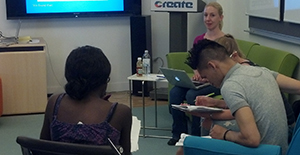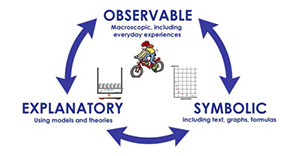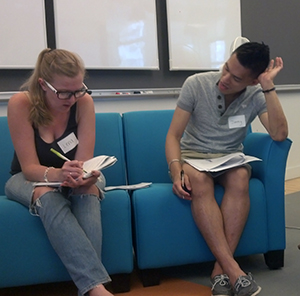Where do the lesson plans come from?

Classroom teachers from New York City who attended a summer workshop at NYU in July of 2011 developed most of the lesson plans on this site. We hope you find these lesson plans useful in your own classroom, and that you will share your plans as well.
What do the simulations include?
From the simulations page students can explore simulations on four related topics – kinetic molecular theory, diffusion, the gas laws, and phase change. Each simulation includes a narrative about an everyday phenomenon linked to the topic, an interactive explanatory model, and a dynamic graph that records the user’s exploration of the model.
Our Philosophy
The Molecules & Minds simulations are the result of a design process, which is philosophically centered in five ways:

- Learning is an active process
- Context is everything
- Scaffolding connections between different levels of representation is important to understanding chemical concepts
- Model-based inquiry creates environments which foster active, multi-representational thinking
- Visualizations are important for supporting such learning
How can I get involved in the project?

There are many ways to get involved with the Molecules & Minds project:
- Integrate the simulations into your lessons and share your experiences with us! If you have any stories, critiques or suggestions, feel free to e-mail us at any time.
- If you have a lesson plan you have created which uses the simulations to promote active, model-based inquiry, we’d love to discuss sharing it on this website.
- We continue to run experiments to test various features of our simulations, with the goal of improving the design to better support student learning. We conduct this research in schools as well as bringing classes into our lab on the New York University campus as part of the simulation design and testing process. If you are an educator in the New York City area and would like to explore becoming a participating researcher, please contact us.